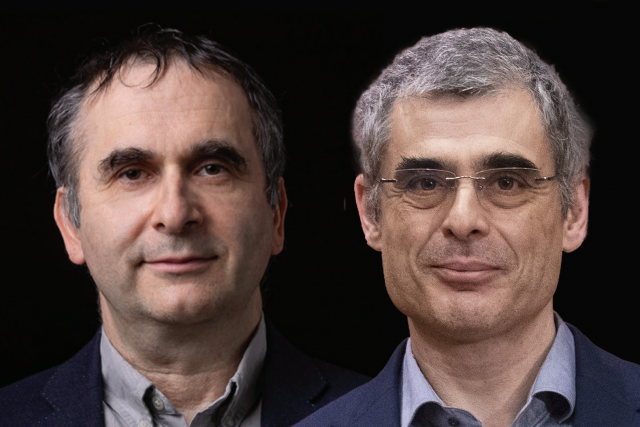Academics András Stipsicz and Csaba Pál awarded the European Research Council Advanced Grant
Mathematician András Stipsicz and biologist Csaba Pál, full member and corresponding member, respectively, of the Hungarian Academy of Sciences (MTA), have been awarded Advanced Grants by the European Research Council for leading researchers who have achieved significant research results in the last ten years.
On 11 April 2024, the European Research Council (ERC), the European Union’s largest funding organisation for discovery research, published the list of Advanced Grant winners on its website. Of the 1,829 proposals submitted, 255 (13.9%) were successful, for a total of €652 million.
Two Hungarian researchers are among the winners: András Stipsicz (HUN-REN Alfréd Rényi Mathematical Research Institute, MTA Research Site of Excellence) in the category Physical Sciences and Engineering; and Csaba Pál (HUN-REN Biological Research Centre, Szeged, MTA Research Site of Excellence) in the category Life Sciences, who will be able to carry out a five-year research programme with their research groups with the support of the EU organisation.
 András Stipsicz (balra) and Csaba Pál Source: mta.hu
András Stipsicz (balra) and Csaba Pál Source: mta.huAndrás Stipsicz is a full member of the Hungarian Academy of Sciences, an expert in low-dimensional topology and contact topology, director of the HUN-REN Alfréd Rényi Mathematical Research Institute, and a previous winner of the Hungarian Lifeline (Élvonal) and Momentum (Lendület) tenders and an ERC Advanced Grant in 2012.
The title of his funded research programme is “Knots and Surfaces in Four-Manifolds.” Four-dimensional manifolds are rather strange compared to other dimensional manifolds, as there are many interesting phenomena that occur only in four dimensions. The main goal of the project is
to develop methods and approaches to better understand these peculiar objects.
The main novelty in their approach is the systematic use of knot theory methods. We will soon report on his research plans and the topic in a longer and more accessible form here on mta.hu.
Csaba Pál is a corresponding member of MTA and Scientific Advisor at the Institute of Biochemistry, HUN-REN Biological Research Centre, Szeged, and a two-time winner of the Momentum (Lendület) grant and the third ERC grant (2008: ERC Starting Grant; 2015: ERC Consolidator Grant).
With a five-year €2.5 million grant, his research team will focus on the underlying mechanisms of antibiotic resistance. Their research will investigate
whether and by what mechanisms pathogens develop resistance under laboratory conditions.
Using molecular databases, they plan to demonstrate that the mutations observed in the laboratory that confer resistance are already present in bacteria in nature and in hospitals. They may even be present in beneficial bacteria in the human gut flora. Finally, within the framework of the tender, suggestions are made on how to develop better antibiotics. More on Csaba Pál and his research team’s plans will be published soon on mta.hu.
